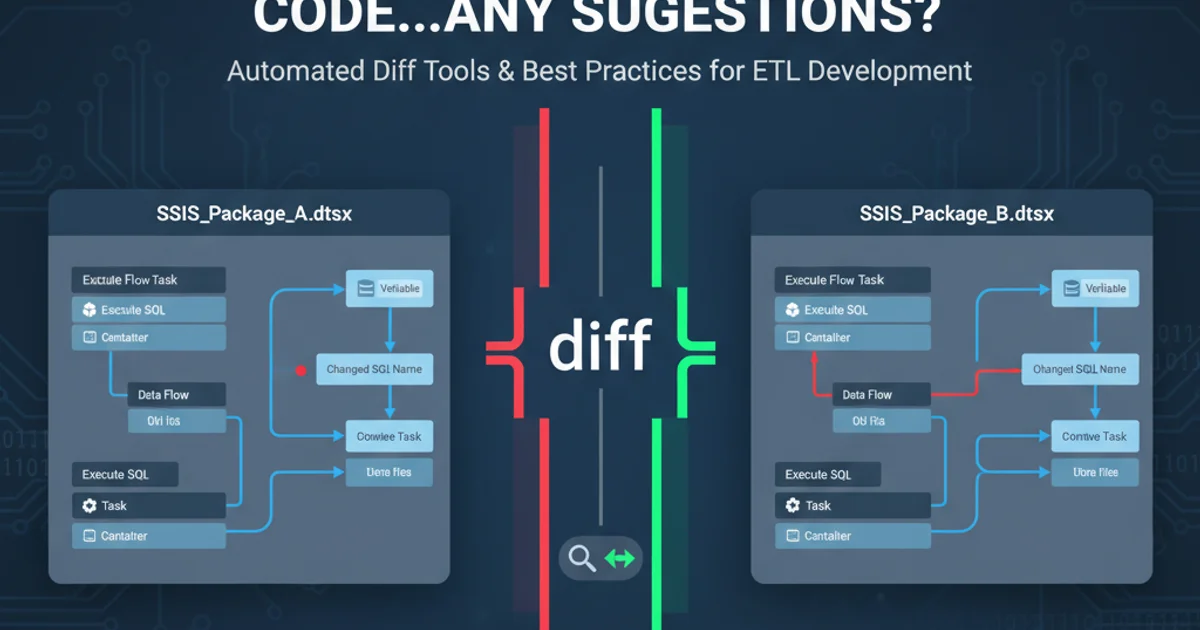'module' object has no attribute 'loads' while parsing JSON using python
Categories:
Resolving 'module' object has no attribute 'loads' in Python JSON Parsing

Encountering 'module' object has no attribute 'loads' when working with JSON in Python? This article explains the common causes and provides clear solutions to correctly parse JSON data.
The error message 'module' object has no attribute 'loads' is a common pitfall for Python developers when attempting to parse JSON strings. It indicates that you're trying to call a method named loads on an object that doesn't possess it. In the context of JSON parsing, this almost always points to an incorrect import or a naming conflict with Python's built-in json module.
Understanding the Python json Module
Python's standard library includes a powerful json module designed for encoding and decoding JSON data. This module provides two primary functions for handling JSON strings:
json.loads(): This function takes a JSON formatted string as input and deserializes it into a Python object (e.g., dictionary, list).json.load(): This function takes a file-like object (e.g., an open file) as input and deserializes the JSON data from it into a Python object.
The error 'module' object has no attribute 'loads' typically arises when you've either imported the json module incorrectly or shadowed its name with another variable or module.
flowchart TD
A[Start]
A --> B{Attempt to parse JSON string}
B --> C{Is `json` module correctly imported and used?}
C -- No --> D["Error: 'module' object has no attribute 'loads'"]
C -- Yes --> E[Call `json.loads(json_string)`]
E --> F[Successfully parse JSON]
D --> G[Review imports and variable names]
G --> BFlowchart illustrating the common path to the 'loads' attribute error.
Common Causes and Solutions
Let's explore the most frequent reasons for this error and how to fix them.
json.py in your project directory or Python's sys.path that could conflict with the standard library module.Cause 1: Incorrect Import Statement
The most common reason for this error is importing the json module incorrectly. Instead of importing the module itself, you might accidentally import a specific function or a different module with a similar name.
Incorrect Import Example:
from json import loads
json_string = '{"name": "Alice", "age": 30}'
# This will raise the error because 'loads' is now a function, not a module
# and you're trying to call loads.loads()
parsed_data = loads.loads(json_string)
Incorrect import leading to the 'loads' attribute error.
Solution:
To fix this, you should import the json module directly and then call its loads method using dot notation (json.loads()).
import json
json_string = '{"name": "Alice", "age": 30}'
# Correct way to call loads()
parsed_data = json.loads(json_string)
print(parsed_data)
# Output: {'name': 'Alice', 'age': 30}
Correct way to import and use the json module.
Cause 2: Shadowing the json Module Name
Another scenario is when you define a variable or a function in your code with the same name as the json module. This 'shadows' the original module, making it inaccessible by its intended name.
Shadowing Example:
import json
# Accidentally assign a variable named 'json'
json = "This is not the json module"
json_string = '{"city": "New York"}'
# This will raise the error because 'json' is now a string, not the module
parsed_data = json.loads(json_string)
Variable shadowing the json module.
Solution:
Avoid using json as a variable name. Choose descriptive variable names that don't conflict with imported module names.
import json
# Use a different variable name, e.g., 'json_data_string'
json_data_string = '{"city": "New York"}'
# Correctly call json.loads()
parsed_data = json.loads(json_data_string)
print(parsed_data)
# Output: {'city': 'New York'}
Correct variable naming to avoid shadowing.
Cause 3: Custom json.py File
If you have a file named json.py in your project directory or in a directory that Python checks before its standard library, Python might import your custom file instead of the built-in json module. If your json.py file doesn't define a loads function, you'll get this error.
Solution:
Rename your custom json.py file to something else (e.g., my_json_utils.py) to prevent it from conflicting with the standard library module.
Verifying the Type of json
If you're unsure why you're getting the error, you can inspect the type of the json object in your code using the type() function. This can help you diagnose if it's indeed a module or something else.
import json
print(type(json))
# Expected output: <class 'module'>
# If you get something else, like <class 'str'> or <class 'function'>,
# then you have an import or naming conflict.
Checking the type of the json object.
By understanding these common causes and applying the provided solutions, you can effectively troubleshoot and resolve the 'module' object has no attribute 'loads' error when parsing JSON in Python.